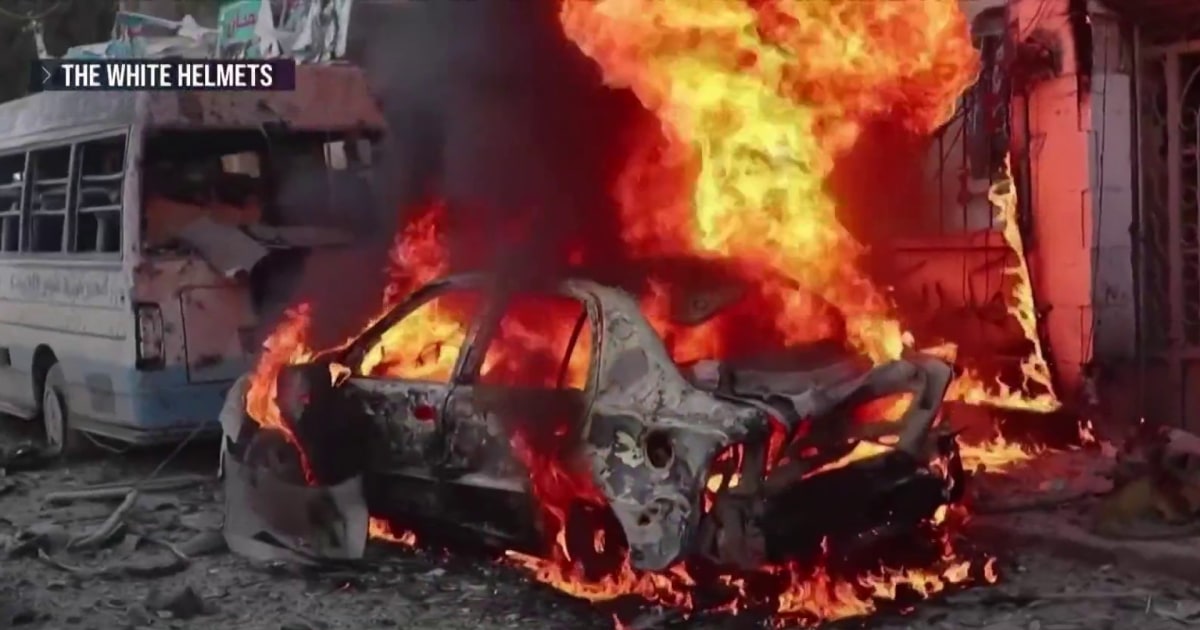Introduction
In a significant turn of events, Syrian rebels have launched a surprise offensive against the forces loyal to President Bashar al-Assad. This unexpected assault not only signifies an escalation of the ongoing conflict but also raises profound questions about the future political and military landscape in Syria. The move comes amidst a complex backdrop of shifting alliances, regional power dynamics, and humanitarian crises that have defined the Syrian civil war for over a decade.
The Current Offensive: What Happened?
Reports indicate that rebel groups, previously thought to be weakened by years of sustained military pressure from Assad’s forces and their allies, have regrouped and mounted a coordinated attack on several fronts. This offensive appears to be characterized by:
- Surprise Tactics: The rebels have employed guerrilla warfare tactics, catching Assad’s troops off guard and exploiting their vulnerabilities.
- Unity Among Factions: Various factions, including the Free Syrian Army and Islamist groups, have reportedly collaborated in this assault, marking a rare moment of unity among the opposition.
- International Context: The offensive seems to coincide with changing international dynamics, including shifts in U.S. policy towards Syria and increased support from regional powers.
Implications for Assad’s Regime
The sudden resurgence of rebel forces poses a direct challenge to the Assad regime, which has been attempting to consolidate power after years of brutal conflict. The implications of this offensive for Assad’s regime include:
- Military Vulnerability: This assault exposes the weaknesses in the Assad regime’s military strategy and its reliance on foreign militias, particularly Iranian forces and Russian air support.
- Political Ramifications: An effective offensive could embolden opposition forces and lead to increased calls for international intervention or support.
- Humanitarian Concerns: Renewed fighting might exacerbate the already dire humanitarian situation in Syria, leading to increased displacement and suffering among civilians.
The Broader Context of the Syrian Conflict
The Syrian civil war, now in its twelfth year, has evolved into a multifaceted conflict involving a myriad of actors, including local rebel groups, Kurdish forces, and international powers such as Russia, Iran, and the United States. Key factors to consider include:
Regional Power Dynamics
The Syrian conflict has far-reaching implications for regional stability in the Middle East. The involvement of foreign powers has complicated the situation:
- Iran: Iran’s support for Assad has been unwavering, but a successful rebel offensive could shift Tehran’s calculations.
- Turkey: Turkey’s interest in establishing a buffer zone against Kurdish forces might lead to its increased involvement in supporting the rebels.
- The United States: The U.S. has been inconsistent in its policy toward Syria, balancing support for rebel groups with concerns about ISIS resurgence.
Humanitarian Impact
The ongoing conflict has resulted in one of the worst humanitarian crises of our time, with millions displaced and in need of assistance. The recent escalation of violence raises critical humanitarian issues:
- Displacement: New offensives often lead to mass displacement, further straining resources and humanitarian efforts.
- Access to Aid: Increased fighting can hinder the delivery of humanitarian aid, exacerbating the plight of civilians trapped in conflict zones.
- Health Concerns: The COVID-19 pandemic has already strained health systems in Syria, and renewed violence could worsen public health outcomes.
Potential Outcomes of the Offensive
The immediate and long-term outcomes of the recent offensive by Syrian rebels remain uncertain, but several scenarios could unfold:
- Stalemate: The conflict could descend into a prolonged stalemate, with neither side able to gain decisive ground.
- Increased Foreign Intervention: Should the rebels gain significant momentum, foreign powers might be compelled to intervene, either in support of the regime or the opposition.
- Negotiated Settlement: This offensive could serve as leverage for the opposition, potentially leading to renewed efforts for a political settlement.
Conclusion
The recent surprise offensive by Syrian rebels marks a critical juncture in the ongoing civil war, underscoring the fluid dynamics of power and influence in the region. As the situation unfolds, the future of Syria remains uncertain, fraught with challenges and opportunities for both the Assad regime and opposition forces. The international community must remain vigilant and responsive to the evolving landscape to address the humanitarian needs and seek a resolution to this devastating conflict.
For more information on the ongoing humanitarian crisis in Syria, visit UNHCR.
To understand the geopolitical implications of the Syrian conflict, check our detailed analysis here.
See more CNET 247



